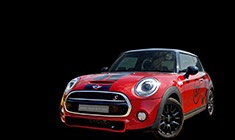News
Are air-cooled batteries sufficient for EVs in Indian climates?
I also recall reading that the first gen Nissan Leaf with the Gen 1 air-cooled batteries had a very bad battery life till Nissan redesigned the batteries.
BHPian shogun_man recently shared this with other enthusiasts.
I came across an article which mentions the following.
EVs with liquid-cooled batteries see better battery life retention because they maintain lower operating temperatures
I also recall reading that the first gen Nissan Leaf with the Gen 1 air-cooled batteries had a very bad battery life till Nissan redesigned the batteries. This got me wondering about the air cooled Li-ion batteries in the hybrid Maruti GV/Toyota UC Hyryder & the Honda City Hybrid & also the EVs with air cooled batteries - Citroen eC3 & most of the electric 2-wheelers in India - Specifically if these would face premature battery failure due to their being air cooled?
Here's what BHPian pram_ind had to say on the matter:
Nissan Leaf uses/used Nickel-Cobalt-LI batteries which are temperature sensitive and so used to degrade faster, when exposed to higher/Lower temps.
But current gen cars like Citroen Ec3 uses Lithium Iron Phosphate batteries which are more tolerant to these Climatic changes, so should last longer.
Here's what BHPian Shreyans_Jain had to say on the matter:
My Nexon EV keeps the AC condenser fan running continuously while charging during summers. Battery cooling. Sometimes the car even diverts the cooling from the cabin towards the batteries for some time while driving, during particularly hot afternoons. My car shows an overall 4% energy being used for just battery conditioning over the past one month, including plenty of night driving. During afternoon drives, I have seen this figure rise to as much as 8%, and a further 25-28% energy being used by the climate control to cool the cabin.
I shudder to think what becomes of batteries which are only air cooled during 50 degree summer heat. People buying such cars are brave indeed.
Here's what BHPian Shrest_EV had to say on the matter:
Tata and MG also use LFP, almost 80% 4W EVs are LFP in India
Temperature resistance
LFP liquid cooled > NMC liquid cooled > LFP air cooled > NMC air cooled
(Most durable in high temp to least durable in high temp)
All hybrids in India have air cooled batteries only, GV, hyryder and eHEV have lithium ion (chemistry unknown) while invicto/hycross and Camry/lexus have NiMH
I have seen few Camry hybrid listings on OLX/Quickr where the owner said that either the car has undergone battery replacement already under 100K km (later toyota raised warranty to 160K km) or the car had worn out batteries and being sold for proportionally lesser cost.
Even the legacy of Prius is not applicable to our hybrids as Prius used NiMH too, until the latest MY24 Prius, which is now lithium ion. So the pointers about hybrid longevity are all for the NiMH models.
NiMH has different properties and cycle count than lithium ion so that data cannot be applied to lithium ion hybrid’s longevity.
In either case, news from repair shops is not inspiring confidence either :
It still seems Toyota ones are most reliable as far as NiMH is concerned, not enough data is available on Li ion hybrids.
What sticks out most, is that the replacement costs are too high (even higher than EV batteries at times) and that there is almost no reuse value, unlike EV batteries which can be grid storage for solar backup, or in ICE2EV conversions kits (like Zack’s Hummer EV or Teslarossa)
Here's what BHPian Alive2Drive had to say on the matter:
I own an Ioniq 5 and am aware that it has a liquid cooled NMC battery. Also, all the mercedes EVs have liquid cooled EVs.
I am aware as there is a coolant cost every 60000 kms where the battery coolant is replaced and its estimate cost is around 15 to 19 thousand INR.
Read BHPian comments for more insights and information.



.jpg)

















